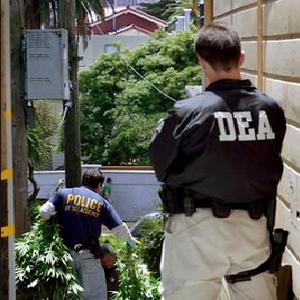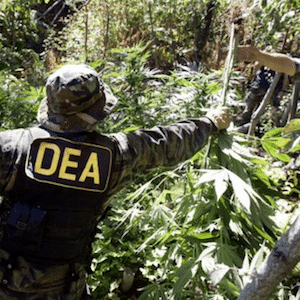 (Bernd Debusmann Jr. has lived and worked in his native Mexico for the last two years, most of it as a full-time freelancer for Reuters TV, also contributing to Fox Latino. Previously he worked as a reporter in New York City and as a freelance producer for the Reuters Latin American Television Desk in Washington DC, during which time he dealt with many drug trafficking stories. During 2010 and 2011 he authored the weekly Mexico Drug War Update published by this newsletter, available in our Mexican Drug War archive section.)
(Bernd Debusmann Jr. has lived and worked in his native Mexico for the last two years, most of it as a full-time freelancer for Reuters TV, also contributing to Fox Latino. Previously he worked as a reporter in New York City and as a freelance producer for the Reuters Latin American Television Desk in Washington DC, during which time he dealt with many drug trafficking stories. During 2010 and 2011 he authored the weekly Mexico Drug War Update published by this newsletter, available in our Mexican Drug War archive section.)
On Monday, July 16th, Mexican marines captured Miguel Angel Trevino Morales, the leader of Mexico’s notorious Zetas criminal organization, just outside the border city of Nuevo Laredo, along with his bodyguard, an accountant, some $2 million in cash and eight weapons. How much difference will his capture make on the flow of drugs to the United States? Probably not much.
Trevino Morales, widely known as Z-40, is the most important criminal figure captured or killed so far during the administration of President Enrique Pena Nieto, and is widely regarded as one of the most powerful, violent and high-profile violent drug traffickers in the country, having previously served as a regional “plaza” boss in Nuevo Laredo and Veracruz and second-in-command of the organization under his predecessor, Heriberto Lazcano Lazcano.
Aside from being a key player in the Mexico-US drug trade and other illicit businesses, Trevino is thought to be responsible for the deaths of hundreds, if not thousands, of Mexicans as well as foreign migrants. (He has so far been charged with the kidnapping and murder of 265 north-bound migrants in the San Fernando, Tamaulipas, in 2010 and 2011.)
But what effect will his arrest have on Washington’s war on drugs? The unfortunate answer is that it is unlikely to mean much in the long term. History shows that men like Trevino are quickly replaceable, and that business goes on.
His predecessor, Heriberto Lazcano, was gunned down in a firefight with the marines in October 2012, only to be replaced by Trevino. Lazcano’s predecessor, Rogelio Gonzalez Pizaña, was arrested in October 2004, just two years after the founder and first leader of the Zetas, Arturo Guzman Decena, was killed in a gun battle with the Mexican army in the city of Matamoros.
Despite being repeatedly decapitated, the organization continued to grow and become more powerful, eventually splitting off from its Gulf Cartel bosses and becoming an independent entity in 2010.
In terms of stemming the flow of drugs to the United States, Trevino’s arrest is unlikely to have any positive effect. In a videotaped 2011 interrogation of Jesus Enrique Rejon Aguilar, an army deserter and one of the original Zetas, Aguilar revealed that the Zetas’ drug trafficking business is managed by personnel dedicated only to that task.
There is no reason to believe that Trevino’s arrest will have any more effect on that apparatus than the arrest of previous bosses. Did the death of Pablo Escobar and the arrest of the heads of the Cali Cartel stem the flow of cocaine from Colombia? No. Did all the kingpins killed or captured under the administration of Calderon (and before) make a difference on the flow of drugs across the Mexican border? No, and neither will Trevino’s.
Trevino’s arrest, however, is likely to have a significantly negative impact on the level of violence in Mexico. Pena Nieto came into office with a promise to stem the bloodshed, but the events of the last few years have shown that the death or arrest of high-level criminals often unleashes a wave of violence as their underlings fight among themselves, as was the case after the death of Arturo Beltran Leyva in 2009.
The Mexican military has been asked by its government to become very good at decapitating cartels, and they have. But it hasn’t made much difference.
In the months before his arrest, Trevino seems to have consolidated his power over the organization, which had experienced factional infighting in 2010 and 2011. While it is likely that Trevino’s brother Alejandro (Z-42) will take the reins of the organization, it remains to be seen whether his leadership will be disputed by other high-ranking Zetas, or whether the organization will fragment without a strong leader.
Another possibility is that — sensing a moment of weakness — the Zeta’s enemies, such as the Sinaloa Cartel under Joaquin “El Chapo” Guzman and the Gulf Cartel, will make a concerted effort to control the city of Nuevo Laredo, long considered the “Crown Jewel” of the Mexican drug trafficking landscape. Previous efforts to wrestle control of the city from the Zetas were extremely bloody, drawn-out affairs.
This isn’t to say that Trevino should have been ignored. He is a ruthlessly efficient criminal with blood on his hands. But the triumphant congratulations on the capture from Mexican and US officials may be premature.
The fact of the matter is that a military-focused strategy, or a strategy focused on individuals, is unlikely to have any long-term positive effect in Mexico’s Drug War.
As long as Americans want to buy a commodity which the Mexican cartels can supply, they will continue to exist, and violence will inevitably follow as a consequence of disputes in a very profitable, unregulated industry. Any change will have to come from a combination of law enforcement and more sensible drug laws in the United States focusing on demand reduction.
Article From StoptheDrugWar.org - Creative Commons Licensing - Donate









